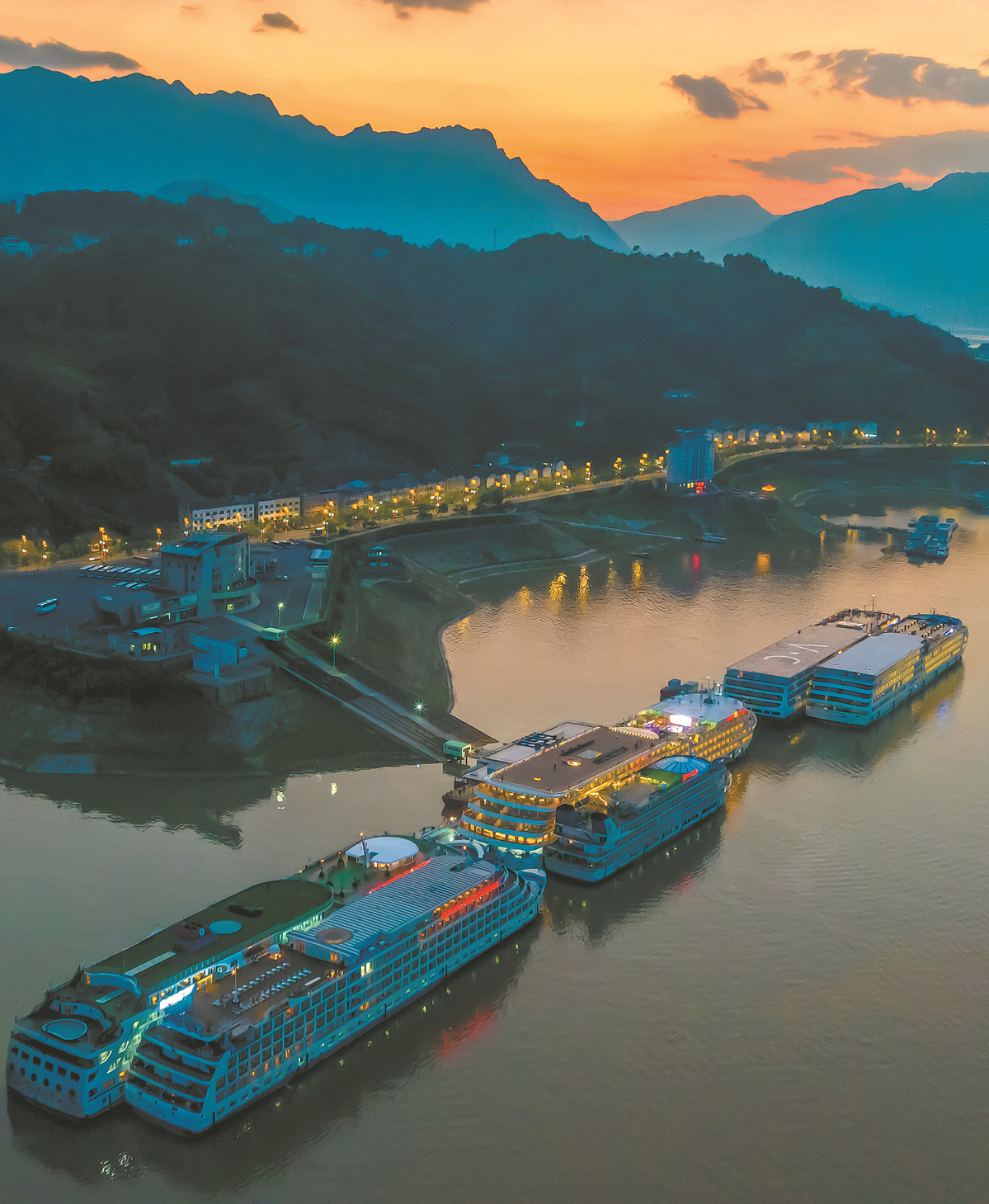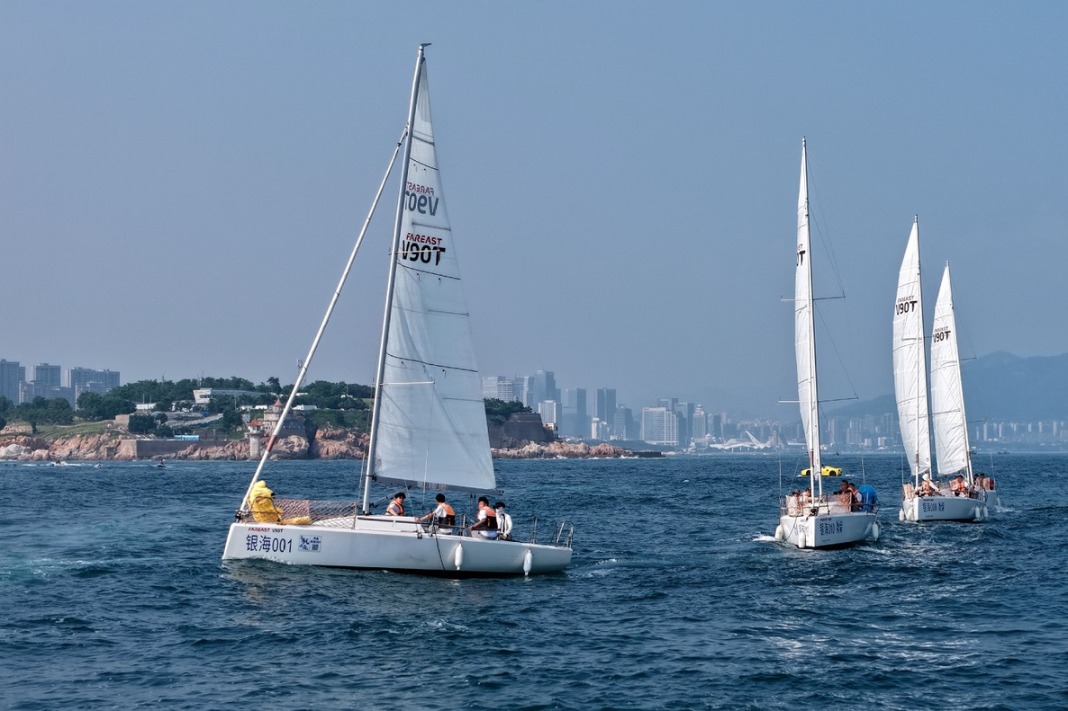China stepping up efforts to make its vast shipping industry green


China is ramping up efforts to green its vast shipping industry, officials and business insiders said on Friday, as the country marked its 21st Maritime Day and reaffirmed its commitment to sustainable development in the transport sector.
"China's shipping industry has made remarkable progress in its transition to green and low-carbon development," said Fu Xuyin, vice-minister of transport, at the opening ceremony of the 2025 China Maritime Day Forum held in Boao, Hainan province.
"We've built a solid foundation for long-term sustainable growth, with the sector's environmental advantages becoming more pronounced," he added.
China Maritime Day, officially designated by the State Council in 2005, commemorates the country's rich maritime heritage and promotes innovation, sustainability, and international cooperation in shipping. This year also marks the 620th anniversary of famed navigator Zheng He's first voyage to the Western Seas.
In 2024, China's waterway cargo volume reached 9.81 billion metric tons — 1.64 times higher than a decade ago — while total cargo turnover via waterways hit 14 trillion ton-kilometers, accounting for over 55 percent of the national freight turnover, according to the Ministry of Transport.
The transition to clean energy in ports and vessels is accelerating. Major ports such as Shanghai have begun large-scale adoption of clean fuel refueling services for vessels. Over 60 percent of trucks operating within international container hubs are now powered by green energy.
Additionally, more than 90 percent of specialized berths — such as container berth and cruise ship berth — at major ports are now equipped with shore power facilities, enabling ships and cruise liners to reduce emissions while docked.
The 2024 China Shipping Development Report, released on Friday, highlights a significant uptick in shore power usage across the Yangtze River Economic Belt last year — up 54 percent year-on-year. The country has built 52 automated terminals and released 9,950 kilometers of digital navigation charts, achieving near-full electronic coverage of inland waterways in the Yangtze River Basin.
"China has built the world's largest merchant fleet and port cluster," said Liu Wei, the transport minister. "We now handle roughly one-third of global seaborne trade. The rise of the maritime economy continues to inject momentum into global commerce."
International Maritime Organization Secretary-General Arsenio Dominguez, who also addressed the forum via video, underscored the urgency of decarbonization.
"The journey toward zero emissions has already begun," he said. "In 2023, the IMO adopted a revised greenhouse gas strategy with an ambitious goal of net-zero emissions around 2050. A critical step will be taken this October when the IMO formally adopts a global framework that includes fuel standards and a pricing mechanism for emissions — vital tools to incentivize the use of low-carbon fuels."
China's major shipping companies are also developing. China Merchants Group, a leading State-owned enterprise, has embedded green goals across its global strategy. "We've introduced a '4321' carbon peaking and neutrality roadmap covering low-carbon shipping and port operations," said Shi Dai, general manager of the group. "We are phasing out older vessels, promoting lightweight and larger ships, and retrofitting existing fleets to improve fuel efficiency."
According to Shi, the group's domestic shipping carbon intensity has dropped 12.4 percent over the past decade. In just the first half of 2025, its operations have cut carbon emissions by 126,000 tons. One of its flagships, the new Eden cruise liner, has slashed emissions by 2,200 tons annually, serving as a model for green ship design. More than 70 percent of its new vessel orders now use LNG, methanol, or other clean propulsion technologies.
Yang Huaxiong, director of the Ministry of Transport's Water Transport Bureau, said China will continue investing in green ports, vessels, and routes. "We are building a safe, efficient, and low-carbon maritime energy system," he said. "It's about achieving harmony between shipping and nature."
As part of this year's Maritime Day celebrations, a series of events — including parallel forums, exhibitions, and youth innovation sessions — are being held across the country, touching on themes such as smart navigation, maritime finance, yacht safety, and sustainable shipping technology.
- China stepping up efforts to make its vast shipping industry green
- Poll shows rising interest in Chinese culture
- Hero driver dies after saving South Korean tourists
- Gratitude poster honors Xinjiang officer who braved flood to save tourists
- Maritime Day events held in China's Hainan
- Intl symposium discusses major global earthquakes and prediction research




































